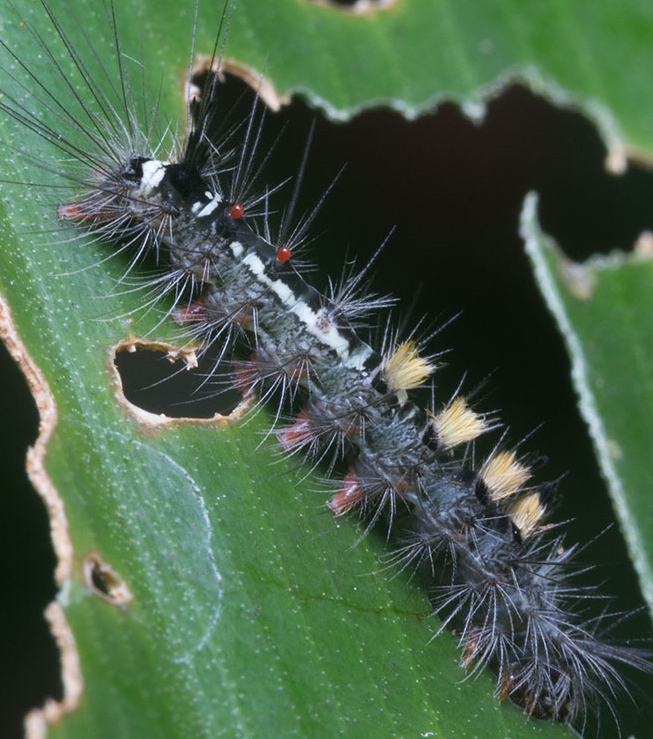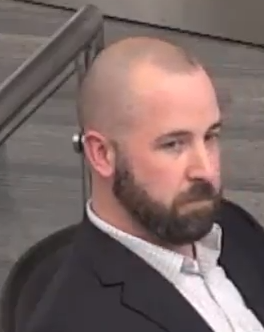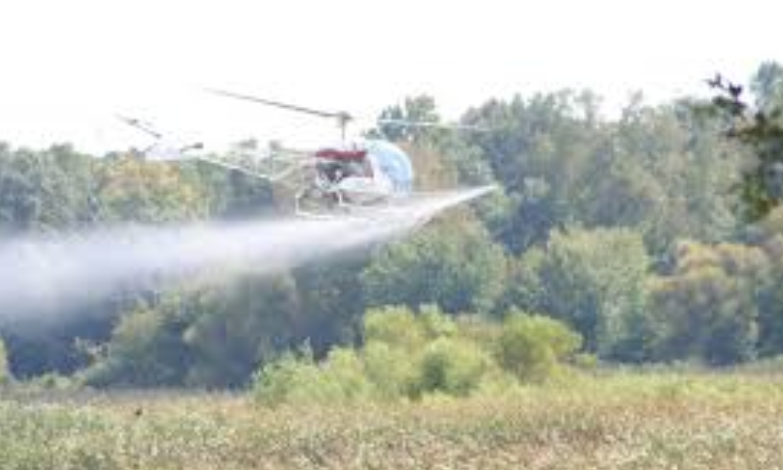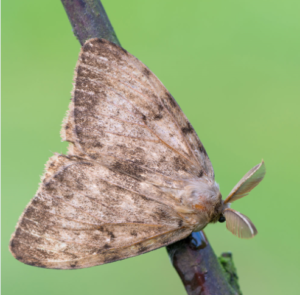 By Staff
By Staff
May 10th, 2021
BURLINGTON, ON

A gypsy-moth as a caterpillar
As part of its Integrated Pest Management program, the City of Burlington will be using a low-flying helicopter to aerial spray a bio-pesticide over four wooded areas to help control gypsy moth populations. The gypsy moths eat the leaves of trees, causing significant defoliation and potential long-term impact to the City’s urban forest.
The areas identified for spraying include:
City View Park
Kilbride Park
LaSalle Park
Zimmerman Park.
The spray program will occur over two days, between May 10 and June 10, 2021. The exact dates and time for the aerial spray are dependent on weather conditions, as well as the development of the insect.
Spray dates will be posted on the City’s Twitter and Facebook accounts @CityBurlington and online at burlington.ca/gypsymoth at least 48-hours before the spraying.

Steve Robinson, Manager of Urban Forestry
Manager of Urban Forestry explains what this is all about: “We need to take action to reduce the gypsy moth population in order to maintain the health of our valuable urban forest. Currently, populations are expected to be too high for their natural predators to keep them in check. By applying a biological pesticide with a measured approach, we will be able to reduce pest populations to manageable levels. Protecting our urban forests is a priority for the City as it greatly impacts our health, homes and recreation.”
Quick Facts
• The City’s contractor will be applying a Class 11 biopesticide, Foray 48B, REGISTRATION NO. 24977 PEST CONTROL PRODUCTS ACT, with active ingredient Bacillus thuringiensis ‘kurstaki’.
• Application of the pesticide with be completed between 5 and 7:30 a.m.
• Bacillus thuringiensis ‘kurstaki’ (Btk) is a soil-borne bacterium that is applied to the leaves of affected trees while caterpillars are in their early stages of development. Once ingested, the bacterium disrupts the caterpillars’ digestive system with cessation of eating within 24-48 hours. Within days, caterpillars that have ingested Btk will succumb to its effects.

Low level helicopter spraying.
• Btk does not have any negative effects to humans, birds or bees. Btk will affect other caterpillar species (known as non-target species). Due to its low residual nature and the narrow spray window due to larval development, the non-target impact is expected to be low.
• Individuals who have concerns should take reasonable precautions to avoid exposure during a spray program in the same way they would avoid pollen or other airborne materials during days when air quality advisories are issued. Residents can also reduce exposure by staying indoors with windows and doors shut during the spray period if spraying is taking place in their area, although this is not required by health officials.
• European Gypsy moth, Lymantria dispar, is a non-native invasive pest that was introduced in the late 19th century. It was first discovered in Ontario in the 1960’s and has been a major defoliator of deciduous and coniferous trees across Southern Ontario.

Gypsy moth once is has matured from a caterpillar
• As part of Burlington’s Integrated Pest Management (IPM) program, Forestry staff assess sites annually across the city and conduct egg mass surveys to determine areas that have exceeded an action threshold, whereby natural processes can no longer maintain pest population levels on their own. Although healthy trees can generally withstand defoliation several years in a row, trees which are already in distress from problems such as acute drought, compacted soils, diseases or other pests, may decline and die. Generally, healthy trees which are defoliated in spring, will leaf out again by mid-summer. Gypsy moth populations tend to be cyclical, with peaks every 8-12 years, followed by dramatic population decline of the pest.
• The City of Burlington last conducted a similar program in 2019. Program frequency is determined as part of the city’s Integrated Pest Management (IPM) program.


















What a disaster the spray is all over the yards here is an idea spray the morons at city hall so they cannot procreate